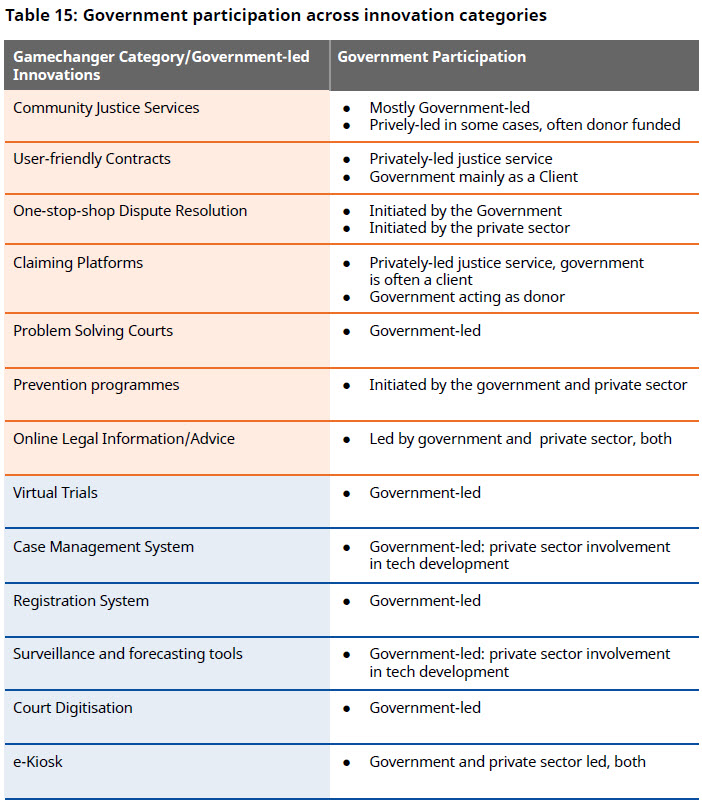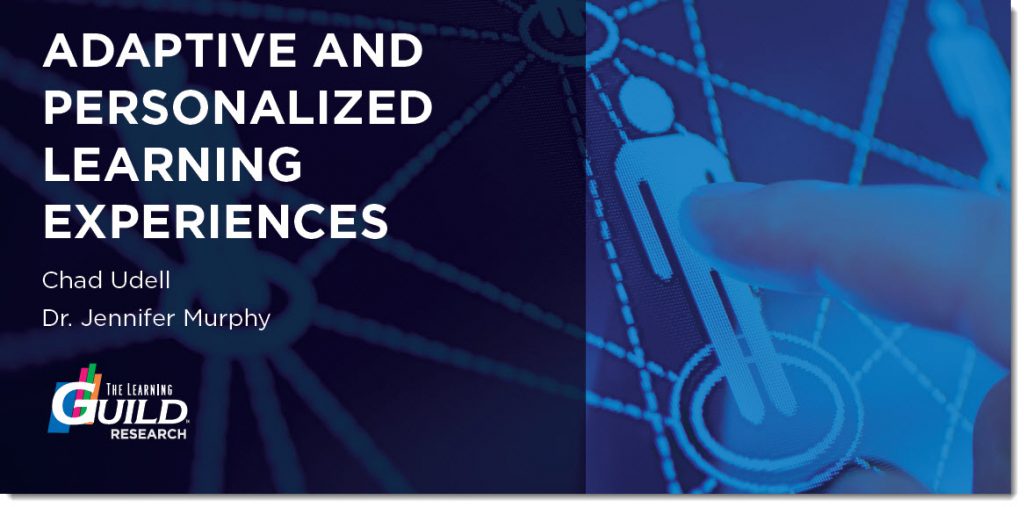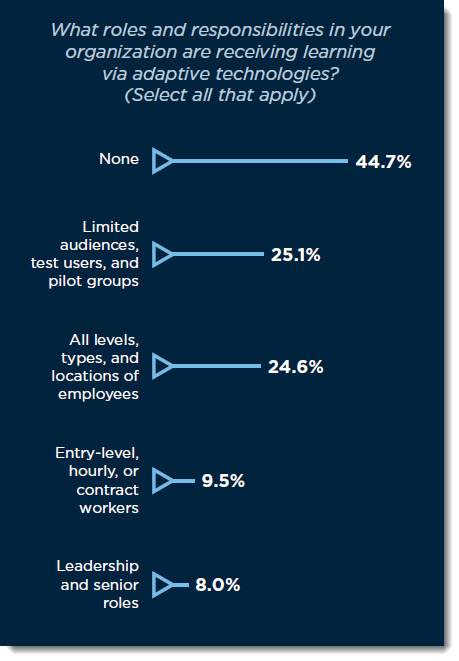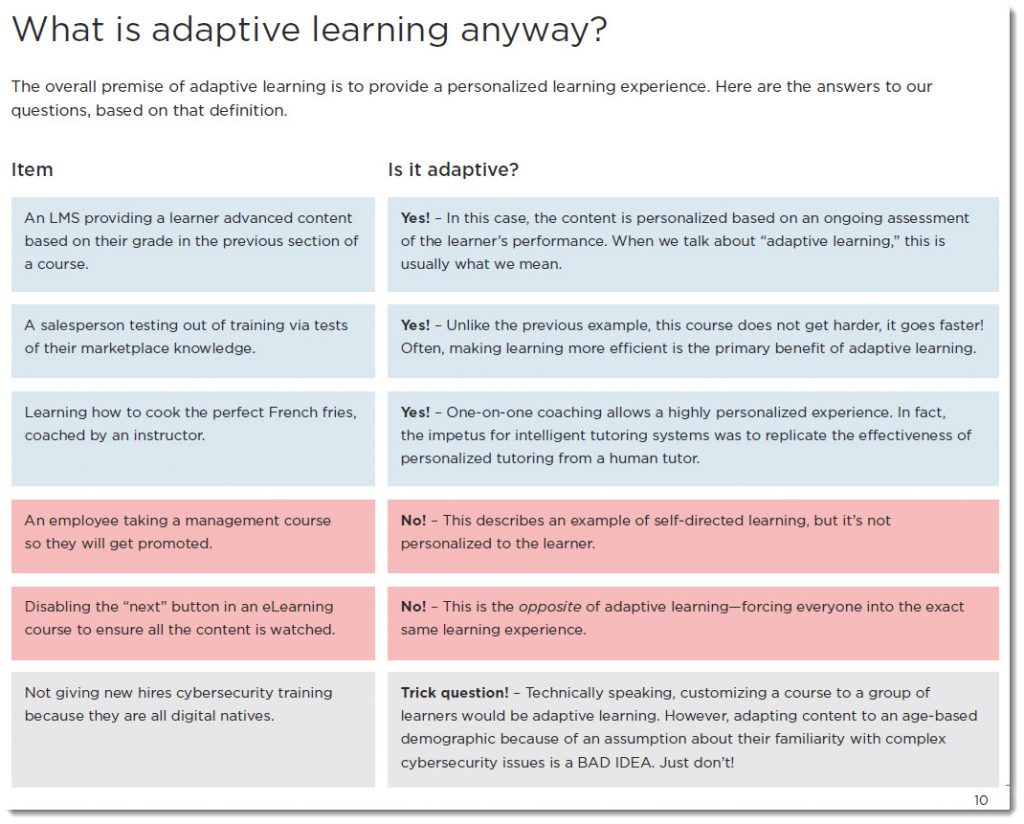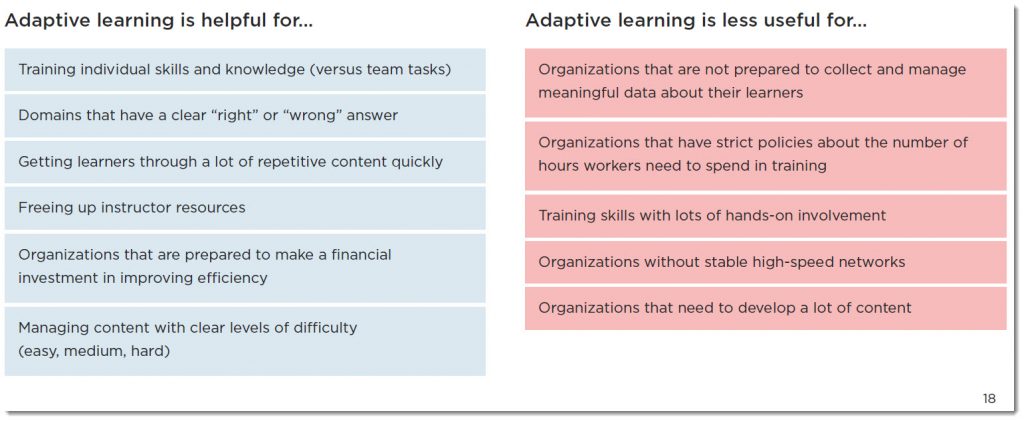Top 22 Technology Trends 2022 — from unfoldlabs.com; with thanks to Pedro Ramon Lopez Garcia for his posting out on LinkedIn
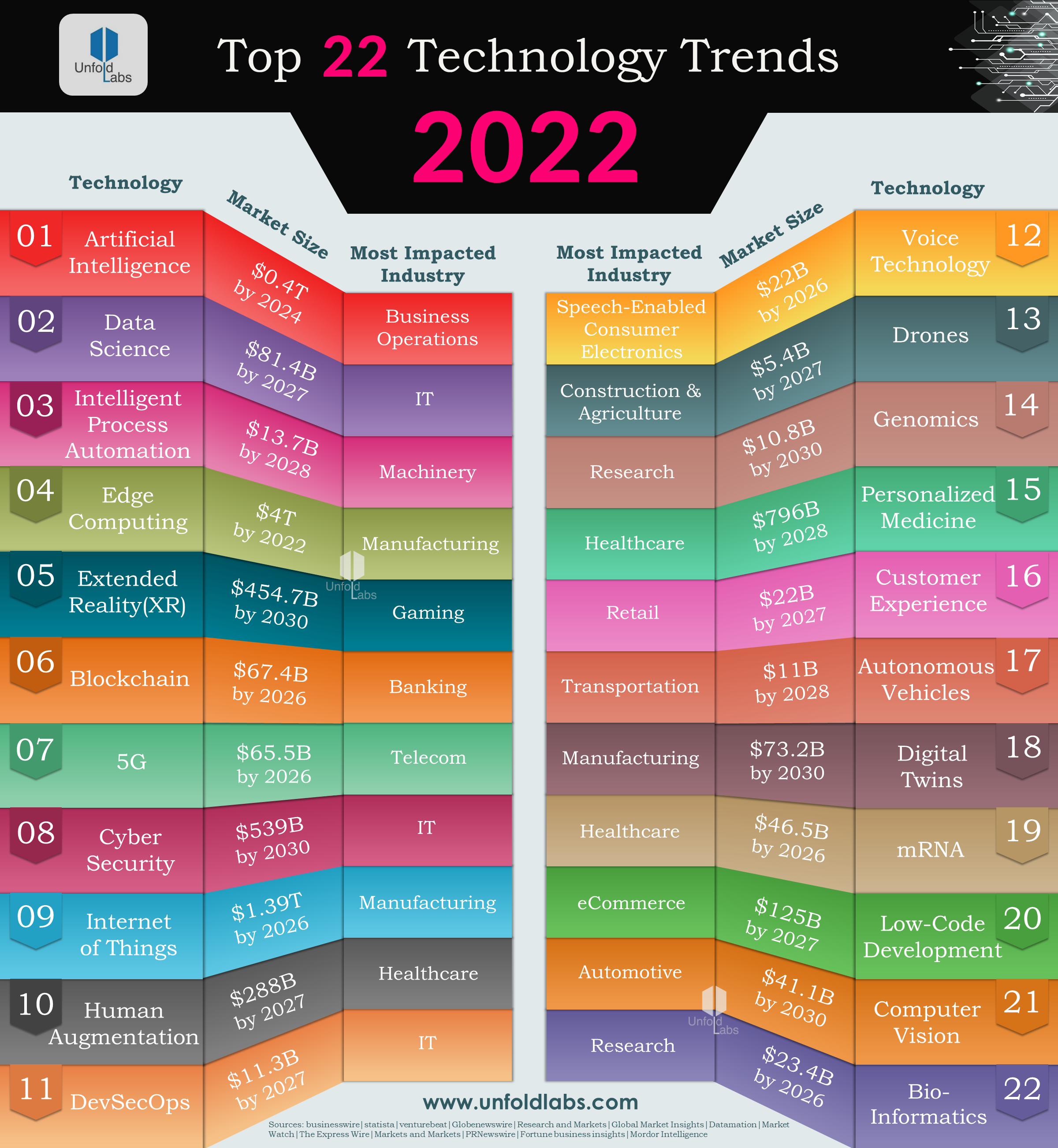
Also see:
- 10 AI Predictions For 2022 — from forbes.com by Rob Toews




Top 22 Technology Trends 2022 — from unfoldlabs.com; with thanks to Pedro Ramon Lopez Garcia for his posting out on LinkedIn

Also see:
From DSC:
As I looked at the article below, I couldn’t help but wonder…what is the role of the American Bar Association (ABA) in this type situation? How can the ABA help the United States deal with the impact/place of emerging technologies?
Clearview AI will get a US patent for its facial recognition tech — from engadget.com by J. Fingas
Critics are worried the company is patenting invasive tech.
Excerpt:
Clearview AI is about to get formal acknowledgment for its controversial facial recognition technology. Politico reports Clearview has received a US Patent and Trademark Office “notice of allowance” indicating officials will approve a filing for its system, which scans faces across public internet data to find people from government lists and security camera footage. The company just has to pay administrative fees to secure the patent.
In a Politico interview, Clearview founder Hoan Ton-That claimed this was the first facial recognition patent involving “large-scale internet data.” The firm sells its tool to government clients (including law enforcement) hoping to accelerate searches.
As you might imagine, there’s a concern the USPTO is effectively blessing Clearview’s technology and giving the company a chance to grow despite widespread objections to its technology’s very existence.
Privacy, news, facial recognition, USPTO, internet, patent,
Clearview AI, surveillance, tomorrow, AI, artificial intelligence
Top 7 Artificial Intelligence Trends In 2022 — from techfunnel.com by Anirudh Menon
Excerpt:
If we look at the last couple of years, we have seen a significant leap in the way Artificial Intelligence is becoming an integral part of many organizations’ business plans. Already the journey of digital transformation has catapulted thanks to Machine Learning and Artificial Intelligence and because of the pandemic situation, we saw significant innovation in the technology front, which will reach new heights in the year 2022 and further.
As strongly claimed by Sundar Pichai, CEO of Google Inc, the impact of artificial intelligence will be far greater than fire and electricity on humanity. Well, it might sound a bit exaggerated but what it implies is that the year 2022 is going to see new developments in this space and it will constantly create new benchmarks.
Excerpt from “Use of digital technologies in judicial reform and access to justice cooperation — from HiiL (The Hague Institute for Innovation of Law)
Adaptive and Personalized Learning Experiences — from learningguild.com by Chad Udell and Jennifer Murphy
Excerpts:
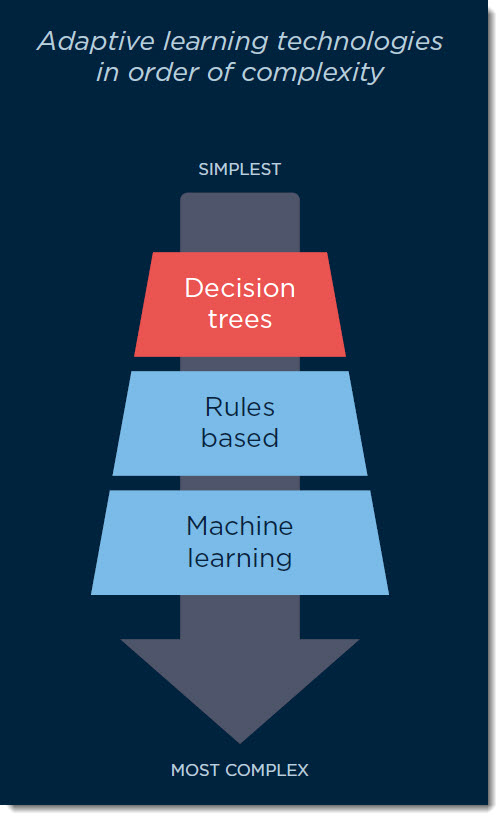
DC: Saw it last night w/ our daughters. This would a great movie for middle schoolers & high schoolers to see & discuss. I enjoyed it. The impact of social media, algorithms, Silicon Valley personalities/dynamics, privacy & data-related issues, friendship. https://t.co/LAqvNuqUnk
— Daniel Christian (he/him/his) (@dchristian5) October 25, 2021
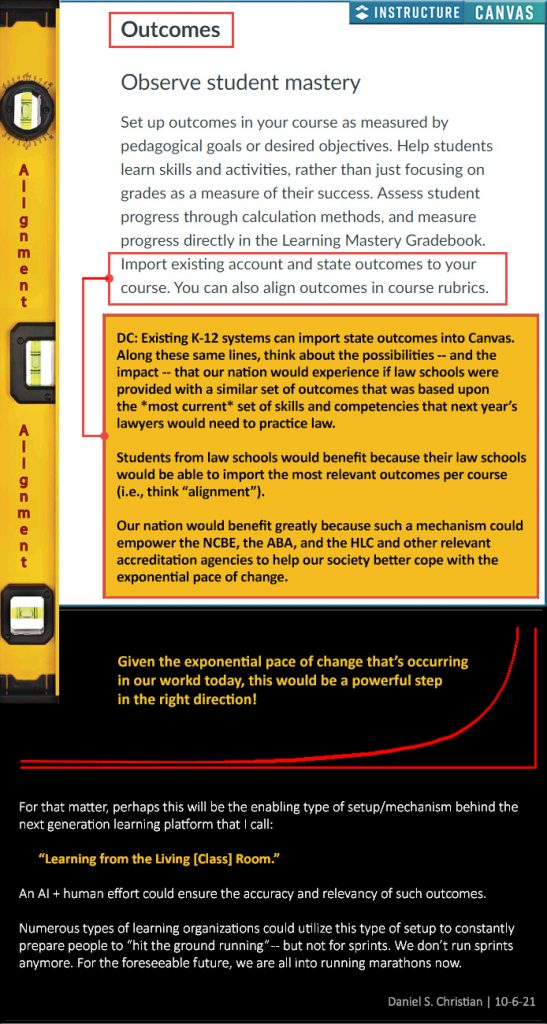
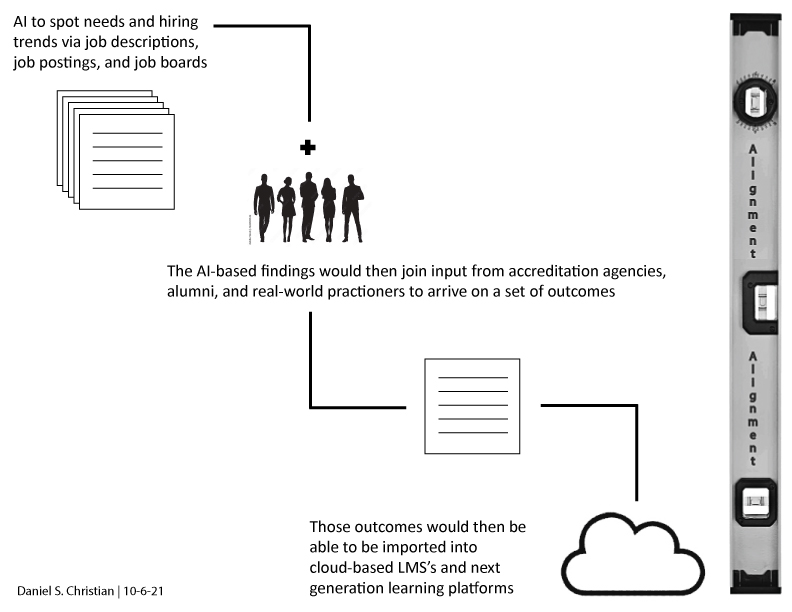

Defining the skills citizens will need in the future world of work — from McKinsey & Company; with thanks to Ryan Craig for this resource
Excerpts:
Our findings help define the particular skills citizens are likely to require in the future world of work and suggest how proficiency in them can influence work-related outcomes, namely employment, income, and job satisfaction. This, in turn, suggests three actions governments may wish to take.
Establish an AI aggregator of training programs to attract adult learners and encourage lifelong learning. AI algorithms could guide users on whether they need to upskill or reskill for a new profession and shortlist relevant training programs.
From DSC:
No one will have all 56 skills that McKinsey recommends here. So (HR) managers, please don’t load up your job postings with every single skill listed here. The search for purple unicorns can get tiring, old, and discouraging for those who are looking for work.
That said, much of what McKinsey’s research/data shows — and what their recommendations are — resonates with me. And that’s why I keep adding to the developments out at:
A powerful, global, next-generation learning platform — meant to help people reinvent themselves quickly, safely, cost-effectively, conveniently, & consistently!!!
An Edtech User’s Glossary to Speech Recognition and AI in the Classroom — from edsurge.com by Thomas C. Murray
Per Thomas Murray:
Recently, I collaborated with SoapBox Labs’ Amelia Kelly, the vice president of speech technology there, to create a glossary to help educators and edtech developers better familiarize themselves with speech recognition and make informed decisions about its use in educational settings. Below are some of the key terms that are particularly important, along with an explanation for why those terms matter.
Personalized Learning Using AI — from datafloq.com by Dmitry Baraishuk
Excerpt:
Process of Implementing Personalized Learning Using AI
…
Personalized learning with AI encompasses all the core aspects of online training:
There’s a New Wave of AI Research Coming to Transform Education — from edsurge.com by Nadia Tamez-Robledo
Preparing for Students’ Second Act
With a focus on adult learners, the AI Institute for Adult Learning and Online Education, or ALOE, will look to improve online education for the more than 100 million American workers who will need to “reskill” over the next 10 years.It will also learn from the massive amounts of data generated by online students that isn’t accessible in traditional in-person classes.
DC: What doors does this type of real-time translation feature open up for learning?https://t.co/beOXFjGZs9#learningfromthelivingclassroom #education #K12 #highereducation #training #learning #lifelonglearning #globallearning #languages #translation https://t.co/TV5InkWHwn pic.twitter.com/MGblMzQbBL
— Daniel Christian (he/him/his) (@dchristian5) August 4, 2021
From DSC:
For that matter, what does it open up for #JusticeTech? #Legaltech? #A2J? #Telehealth?

Google CEO Still Insists AI Revolution Bigger Than Invention of Fire — from gizmodo.com by Matt Novak
Pichai suggests the internet and electricity are also small potatoes compared to AI.
Excerpt:
The artificial intelligence revolution is poised to be more “profound” than the invention of electricity, the internet, and even fire, according to Google CEO Sundar Pichai, who made the comments to BBC media editor Amol Rajan in a podcast interview that first went live on Sunday.
“The progress in artificial intelligence, we are still in very early stages, but I viewed it as the most profound technology that humanity will ever develop and work on, and we have to make sure we do it in a way that we can harness it to society’s benefit,” Pichai said.
“But I expect it to play a foundational role pretty much across every aspect of our lives. You know, be it health care, be it education, be it how we manufacture things and how we consume information.
Learning technology lessons from the front lines — from chieflearningofficer.com by Neda Schlictman
Deloitte’s accelerated rollout of its global LXP during the initial onslaught of the pandemic yielded many lessons for the organization. Following are insights for those who are seeking what’s next for their learning strategies.
Excerpt (emphasis DSC):
More than 330,000 people at Deloitte, across 170 countries, have access to Cura, which aggregates learning content from both internal and external sources and personalizes learning based on the user’s defined skills and interests. Cura enables individual discovery of learning but also allows users to follow prescribed pathways as well as the opportunity to create content.

Artificial intelligence and the future of national security — from news.asu.edu
Excerpt:
Artificial intelligence is a “world-altering” technology that represents “the most powerful tools in generations for expanding knowledge, increasing prosperity and enriching the human experience” and will be a source of enormous power for the companies and countries that harness them, according to the recently released Final Report of the National Security Commission on Artificial Intelligence.
This is not hyperbole or a fantastical version of AI’s potential impact. This is the assessment of a group of leading technologists and national security professionals charged with offering recommendations to Congress on how to ensure American leadership in AI for national security and defense. Concerningly, the group concluded that the U.S. is not currently prepared to defend American interests or compete in the era of AI.
Also see:
EU Set to Ban Surveillance, Start Fines Under New AI Rules — from bloomberg.com by Natalia Drozdiak
Excerpt:
The European Union is poised to ban artificial intelligence systems used for mass surveillance or for ranking social behavior, while companies developing AI could face fines as high as 4% of global revenue if they fail to comply with new rules governing the software applications.
Also see:
Wrongfully arrested man sues Detroit police over false facial recognition match — from washingtonpost.com by Drew Harwell
The case could fuel criticism of police investigators’ use of a controversial technology that has been shown to perform worse on people of color
Excerpts:
A Michigan man has sued Detroit police after he was wrongfully arrested and falsely identified as a shoplifting suspect by the department’s facial recognition software in one of the first lawsuits of its kind to call into question the controversial technology’s risk of throwing innocent people in jail.
Robert Williams, a 43-year-old father in the Detroit suburb of Farmington Hills, was arrested last year on charges he’d taken watches from a Shinola store after police investigators used a facial recognition search of the store’s surveillance-camera footage that identified him as the thief.
Prosecutors dropped the case less than two weeks later, arguing that officers had relied on insufficient evidence. Police Chief James Craig later apologized for what he called “shoddy” investigative work. Williams, who said he had been driving home from work when the 2018 theft had occurred, was interrogated by detectives and held in custody for 30 hours before his release.
Williams’s attorneys did not make him available for comment Tuesday. But Williams wrote in The Washington Post last year that the episode had left him deeply shaken, in part because his young daughters had watched him get handcuffed in his driveway and put into a police car after returning home from work.
“How does one explain to two little girls that a computer got it wrong, but the police listened to it anyway?” he wrote. “As any other black man would be, I had to consider what could happen if I asked too many questions or displayed my anger openly — even though I knew I had done nothing wrong.”
Addendum on 4/20/21:
